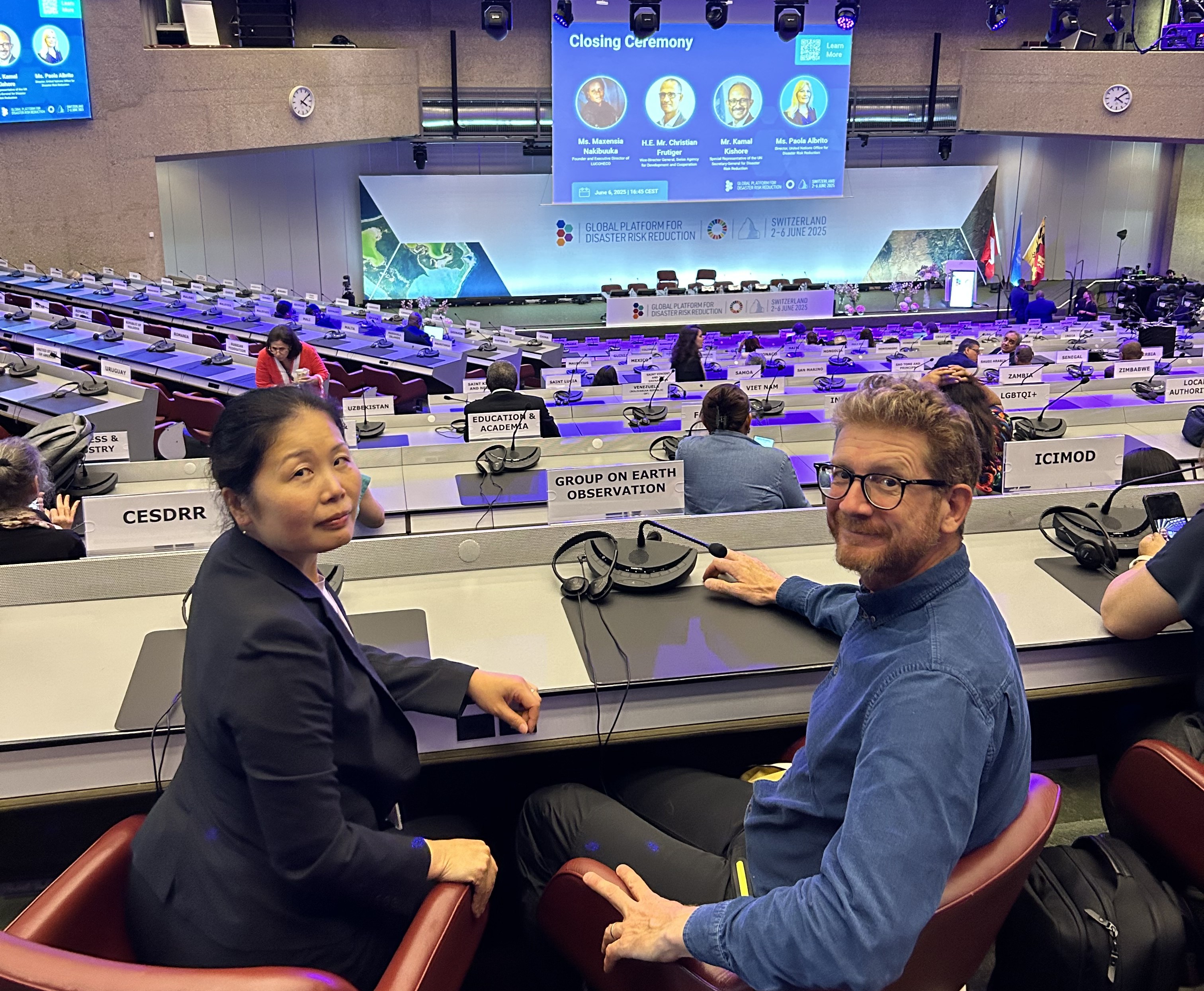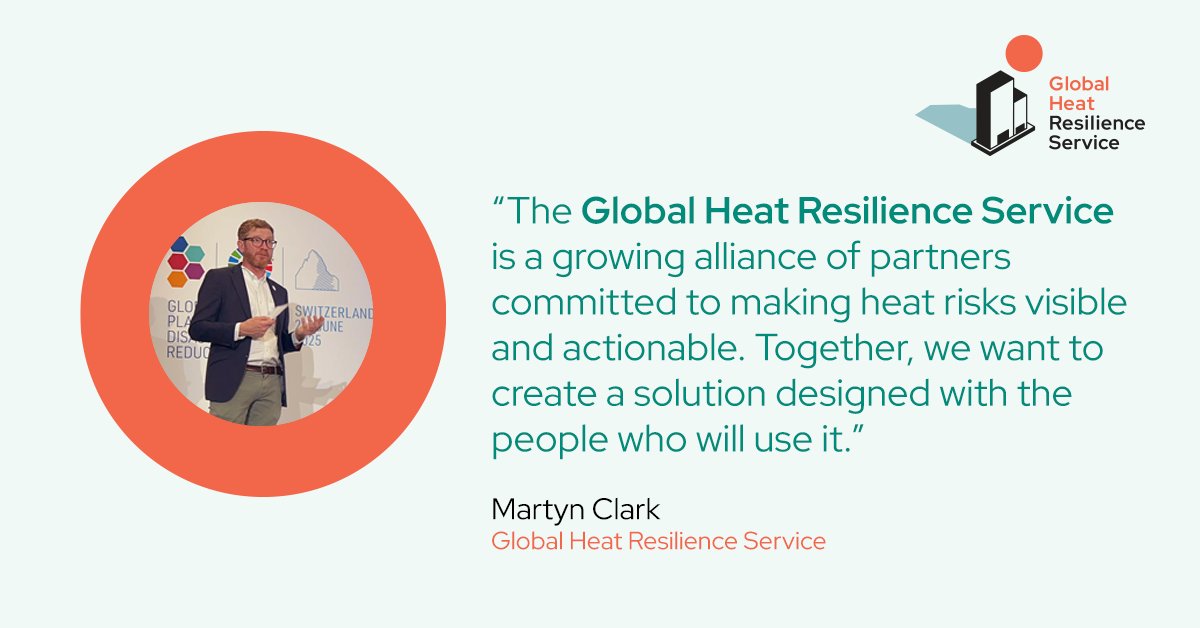Global Heat Resilience Service at GPDRR 2025: From demo to delivery

Extreme heat is now a daily planning problem. The GEO-convened Global Heat Resilience Service turns fragmented data into neighbourhood-scale guidance for mayors and planners: where to cool first, and how.
Here's how we bought it to this year's Global Platform for Disaster Risk Reduction (GPDRR), one of the biggest international conferences on reducing disaster risk, organised by the United Nations Office for Disaster Risk Reduction (UNDRR), one of GEO’s founding Participating Organisations.
GEO’s mission validated
GEO played a key role at GPDRR, shaping two sessions, fielding 12 speakers and running two booths (one on GEO’s disaster risk reduction activities, and another on Digital Earth Pacific, part of the broader GEO Work Programme).
In the Chair’s summary, H.E. Mr. Christian Frutiger underscored two clear messages: we need better data to understand risk. and we must use technology, including artificial intelligence, to accelerate progress.
These key points, echoed throughout the week, strongly validate GEO’s mission: delivering Earth intelligence for All to strengthen resilience and early warnings.

Advancing GEO’s efforts on extreme heat
A concrete example of how we’re delivering on our commitments can be seen in the Global Heat Resilience Service. Highlighted at the GEO booth within the Innovation Platform and on the Ignite Stage, Martyn Clark (GEO Secretariat) shared how GHRS will give city leaders and planners neighbourhood-level heat risk insights to guide zoning, infrastructure upgrades and service delivery.
He outlined key features of a digital decision-support tool now in development with partners in cities, including São Paulo, Bangalore and Freetown. PreventionWeb later ran a piece titled, “A smart tool beating urban heat with actionable insights.” Watch Martyn’s presentation below.
Growing collaboration with UNDRR
UNDRR, as a co-lead on global extreme heat risk governance, works with GEO, providing the data and tools to support the governance framework, with case studies from cities and contributions to UNDRR’s flagship reports, such as the UN Global Assessment Report on DRR.
One significant takeaway from GPDRR 2025 is that GEO’s contributions to disaster risk reduction and early warning are growing, powered by ever-closer collaboration with UNDRR.